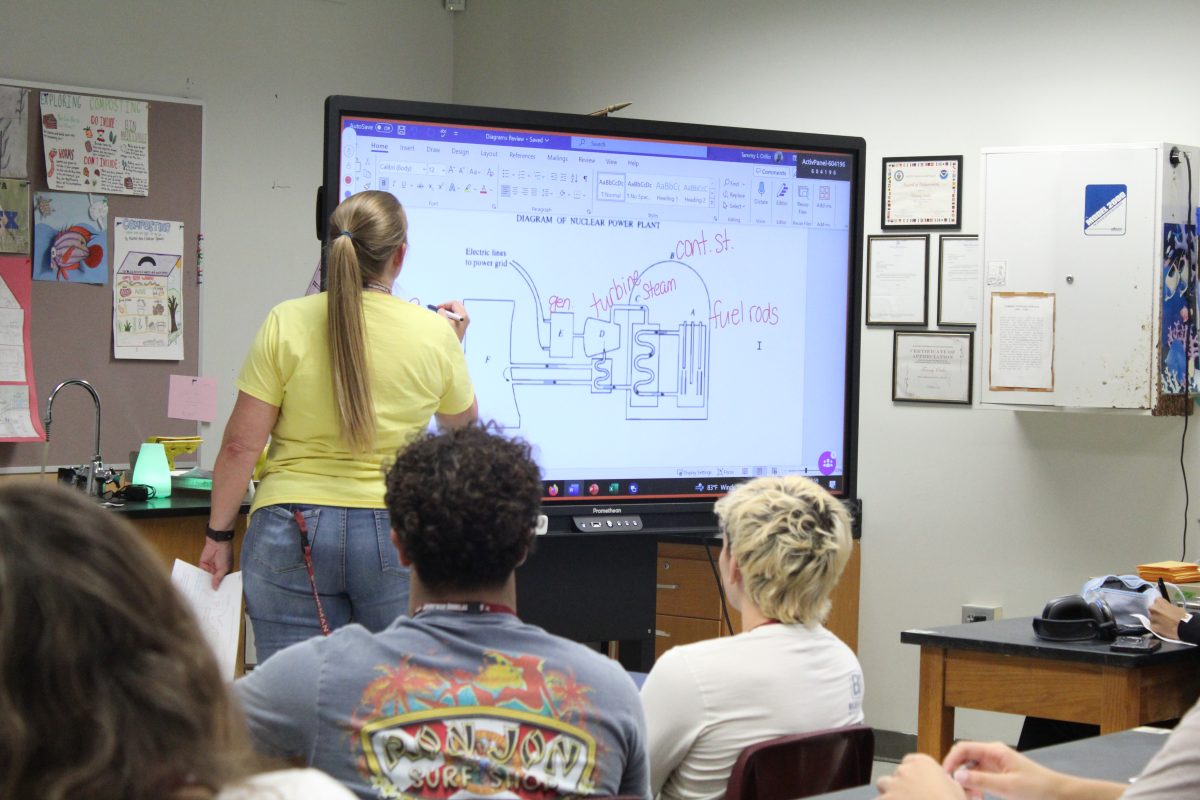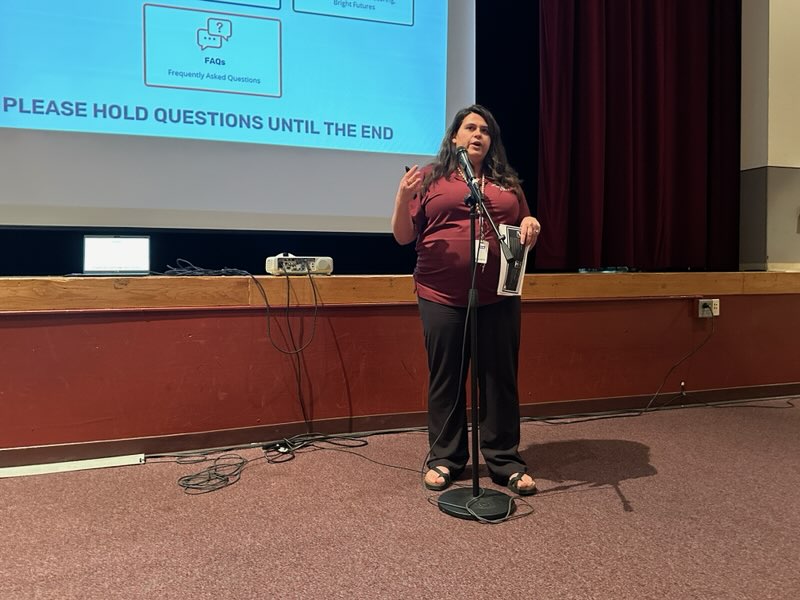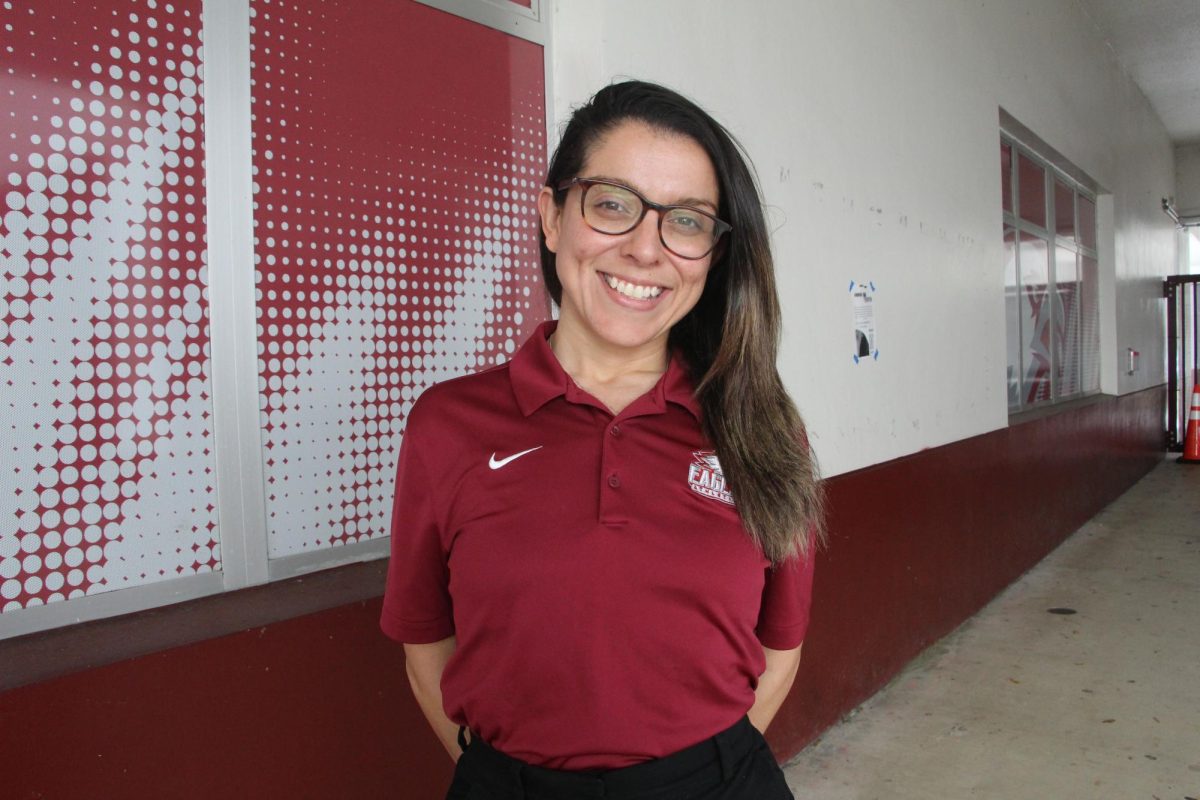Marjory Stoneman Douglas High School students are facing a variety of changes regarding their courses and course selections as the end of the school year approaches and preparations for next school year begin.
Among the shifts in requirements and options for students is the implementation of the personal financial literacy requirement, the restructuring of the progression of social studies courses, higher passing scores for standardized tests, rubric changes to Advanced Placement history courses and the introduction of the Advanced International Certification of Education Cambridge program at MSD.
New Financial Literacy Requirement
Kick-starting changes to course cards and course structures at MSD, a half-credit financial literacy course is now a graduation requirement for current juniors and all the following classes to graduate.
MSD’s administration and the guidance departments decided that for next school year, economics would be paired with financial literacy, and government would be paired with law studies. Students are also required to complete a half credit in government and a half credit in economics to graduate. In previous years, economics and government were paired together for seniors.
The change would force rising seniors to have to take two social studies classes, causing them to lose out on an elective. This has prompted many seniors to turn to options like dual enrollment or Florida Virtual School to take personal finance, economics and/or government.
“I feel like the change has been largely inconvenient for those trying to knock out two credits in one course selection, including myself,” junior Taylor Le said. “My friends and I are thinking about taking economics online, so we can meet the credit.”
This change was a cause of concern for DECA students and students who dual enrolled in personal financial literacy already, as they would receive a “double” credit and be placed in a class they did not need to be in.
Students who complete four years of DECA, a series of four finance-related courses, earn the personal financial literacy requirement without needing to take the newly added financial literacy elective.
MSD subsequently added back the government with economics pairing for next school year for seniors that had already earned financial literacy.
In order to prevent students from having to double up on social studies credits in the future, the typical course progression for history classes will change. Previously, freshmen would take a geography course, sophomores would take world history, juniors would take United States history and seniors would take government and economics.
Geography, which was never a graduation requirement, has been removed from the history structure and, instead, will be offered as an elective. This includes AP Human Geography, which was typically the only AP class offered to freshmen.
Now, freshmen will take world history, sophomores will take government and law studies, juniors will remain in U.S. history and seniors will take economics and personal financial literacy.
AP World History teacher Devin Schaller expressed concerns about freshmen taking his AP World History course, as most previous students took AP Human Geography their freshman year to prepare for the difficulty of the course.
“The difficulty that existed in AP Human was not too much for freshmen but gave them the stepping stone to be successful in AP World,” Schaller said.
State Adjusted FAST Cut Scores
During the 2022 Florida legislative session, SB 1048 removed Florida’s old system of standardized testing, the Florida Standard Assessments, and replaced it with the Florida Assessment of Student Thinking.
Current sophomores and juniors were the first to take the FAST last school year, which is administered three times a year. It is given to students at the beginning of the school year, the middle and the end in an attempt to show progress students have made throughout the year.
This year, the cut score, or minimum score required to pass, for the FAST was approved by the State Board of Education, according to the Florida Department of Education. Previously, the state determined the minimum score to pass as lowest score of the top 50% of students. Now, however, the FLDOE has shifted it to where only 47% of students pass.
“The FAST is more difficult, I feel, than it’s been in the past, and you really have to read the questions to understand, and the passing rate is going to be harder,” English II teacher Holly Van Tassel-Schuster said. “The state felt that it wasn’t challenging enough, so they’ve adjusted that, so now the cut score is 47 [percent].”
There are significant implications for this policy change. For one, it could affect the graduation rate because sophomores must pass Progress Monitoring 3, or the final FAST test of the school year, to graduate. If they do not, students must retake the FAST as an upperclassman or seek concordant scores.
Students who score a level one or two on the FAST “fail,” and level one students may find themselves in a remedial reading class the following year.
Additionally, the increased cut scores could impact MSD’s rating as an “A” school because test scores are a factor considered when determining a school’s grade. Should an additional 3% of students fail to show reading proficiency on the FAST, it could lower MSD’s grade, which affects school staff’s A+ bonus money.
New AICE Cambridge Program
One of the biggest changes coming to MSD is the introduction of the Cambridge AICE program for the upcoming school year. While the program will be expanding in the years to come, students will be able to take AICE Marine Science, AICE Thinking Skills and AICE General Paper next year.
While rising juniors and seniors will only be offered the three classes, incoming freshmen and sophomores will have the opportunity to earn the AICE Cambridge Diploma by earning seven credits across three curriculum areas. Earning the diploma automatically qualifies students for a full Bright Futures scholarship, which means their college tuition is completely paid for if they were to attend a public, in-state university.
In addition to the benefits for students, the AICE program could help MSD more easily achieve an A-rating, as bringing in programs such as AICE helps boost school acceleration points, which factor into a school’s overall grade.
However, some AP teachers are concerned about the future of their programs now that students will be offered an alternative, which some consider easier than AP classes. Others are waiting to see the impact of the AICE program.
“I think that it’s a little bit too soon to see the actual impact,” AP Language and Literature teacher Laurie Edgar said. “There are certain students for whom the AICE program is going to be more appropriate and certain students for whom the AP program will be more appropriate.”
Current and future MSD students now face a variety of changes to the standards required of them throughout high school. While the impacts of most cannot yet be determined, they will surely play out in years to come.
This story was originally published in the March 2023 Eagle Eye print edition.















































